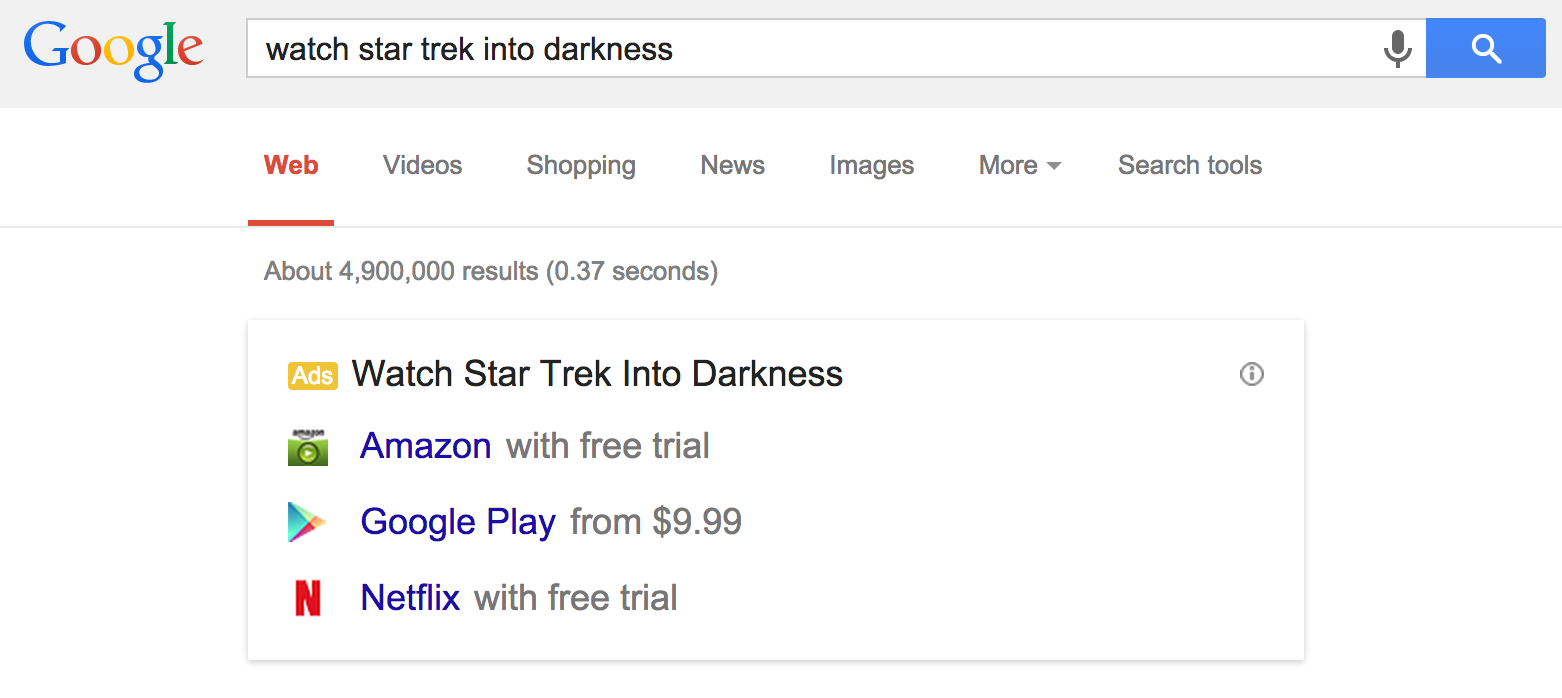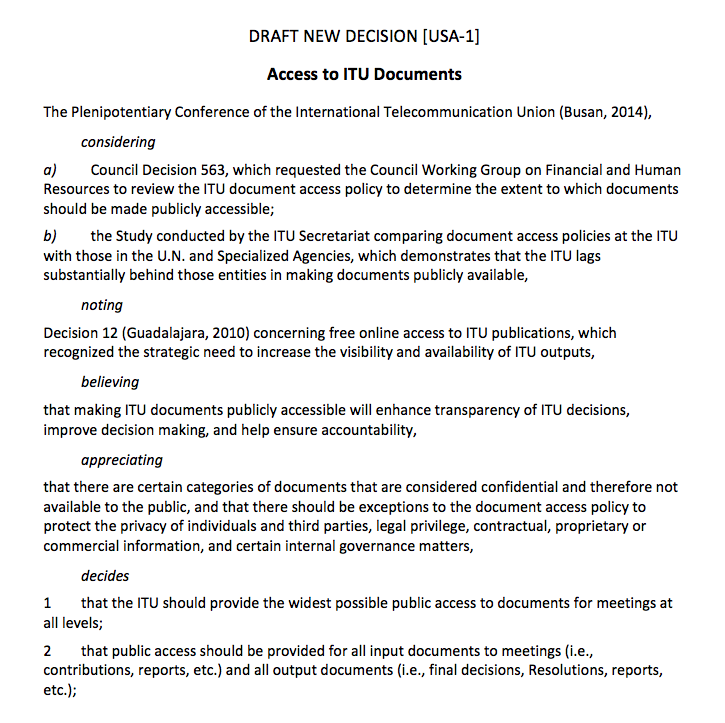Last week marked the conclusion of the ITU’s Plenipotentiary Conference, the quadrennial gathering during which ITU member states get together to revise the treaty that establishes the Union and conduct other high-level business. I had the privilege of serving as a member of the US delegation, as I did for the WCIT, and to see the negotiations first hand. This year’s Plenipot was far less contentious than the WCIT was two years ago. For other summaries of the conference, let me recommend to you Samantha Dickinson, Danielle Kehl, and Amb. Danny Sepulveda. Rather than recap their posts or the entire conference, I just wanted to add a couple of additional observations.
We mostly won on transparent access to documents
Through my involvement with WCITLeaks, I have closely followed the issue of access to ITU documents, both before and during the Plenipot. My assessment is that we mostly won.
Going forward, most inputs and outputs to ITU conferences and assemblies will be available to the public from the ITU website. This excludes a) working documents, b) documents related to other meetings such as Council Working Groups and Study Groups, and c) non-meeting documents that should be available to the public.
However, in February, an ITU Council Working Group will be meeting to develop what is likely to be a more extensive document access policy. In May, the whole Council will meet to provisionally approve an access policy. And in 2018, the next Plenipot will permanently decide what to do about this provisional access policy.
There are no guarantees, and we will need to closely monitor the outcomes in February and May to see what policy is adopted—but if it is a good one, I would be prepared to shut down WCITLeaks as it would become redundant. If the policy is inadequate, however, WCITLeaks will continue to operate until the policy improves.
I was gratified that WCITLeaks continued to play a constructive role in the discussion. For example, in the Arab States’ proposal on ITU document access, they cited us, considering “that there are some websites on the Internet which are publishing illegally to the public ITU documents that are restricted only to Member States.” In addition, I am told that at the CEPT coordination meeting, WCITLeaks was thanked for giving the issue of transparency at the ITU a shot in the arm.
A number of governments were strong proponents of transparency at the ITU, but I think special thanks are due to Sweden, who championed the issue on behalf of Europe. I was very grateful for their leadership.
The collapse of the WCIT was an input into a harmonious Plenipot
We got through the Plenipot without a single vote (other than officer elections)! That’s great news—it’s always better when the ITU can come to agreement without forcing some member states to go along.
I think it’s important to recognize the considerable extent to which this consensus agreement was driven by events at the WCIT in 2012. At the WCIT, when the US (and others) objected and said that we could not agree to certain provisions, other countries thought we were bluffing. They decided to call our bluff by engineering a vote, and we wisely decided not to sign the treaty, along with 54 other countries.
In Busan this month, when we said that we could not agree to certain outcomes, nobody thought we were bluffing. Our willingness to walk away at the WCIT gave us added credibility in negotiations at the Plenipot. While I also believe that good diplomacy helped secure a good outcome at the Plenipot, the occasional willingness to walk the ITU off a cliff comes in handy. We should keep this in mind for future negotiations—making credible promises and sticking to them pays dividends down the road.
The big question of the conference is in what form will the India proposal re-emerge
At the Plenipot, India offered a sweeping proposal to fundamentally change the routing architecture of the Internet so that a) IP addresses would be allocated by country, like telephone numbers, with a country prefix and b) domestic Internet traffic would never be routed out of the country.
This proposal was obviously very impractical. It is unlikely, in any case, that the ITU has the expertise or the budget to undertake such a vast reengineering of the Internet. But the idea would also be very damaging from the perspective of individual liberty—it would make nation-states, even more than the are now, mediators of human communication.
I was very proud that the United States not only made the practical case against the Indian proposal, it made a principled one. Amb. Sepulveda made a very strong statement indicating that the United States does not share India’s goals as expressed in this proposal, and that we would not be a part of it. This statement, along with those of other countries and subsequent negotiations, effectively killed the Indian proposal at the Plenipot.
The big question is in what form this proposal will re-emerge. The idea of remaking the Internet along national lines is unlikely to go away, and we will need to continue monitoring ITU study groups to ensure that this extremely damaging proposal does not raise its head.



 The Technology Liberation Front is the tech policy blog dedicated to keeping politicians' hands off the 'net and everything else related to technology.
The Technology Liberation Front is the tech policy blog dedicated to keeping politicians' hands off the 'net and everything else related to technology.